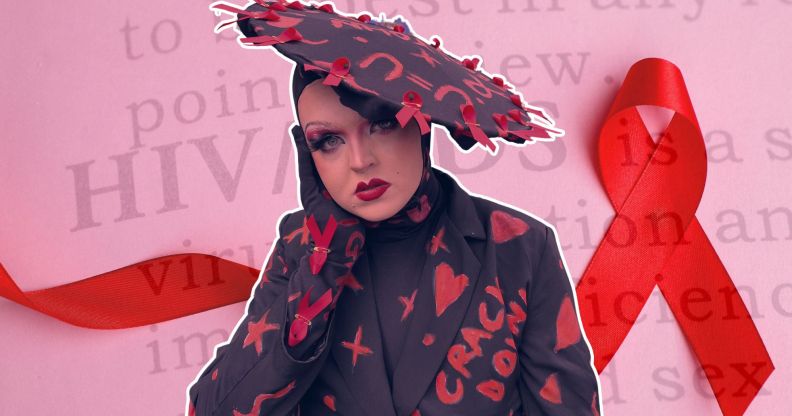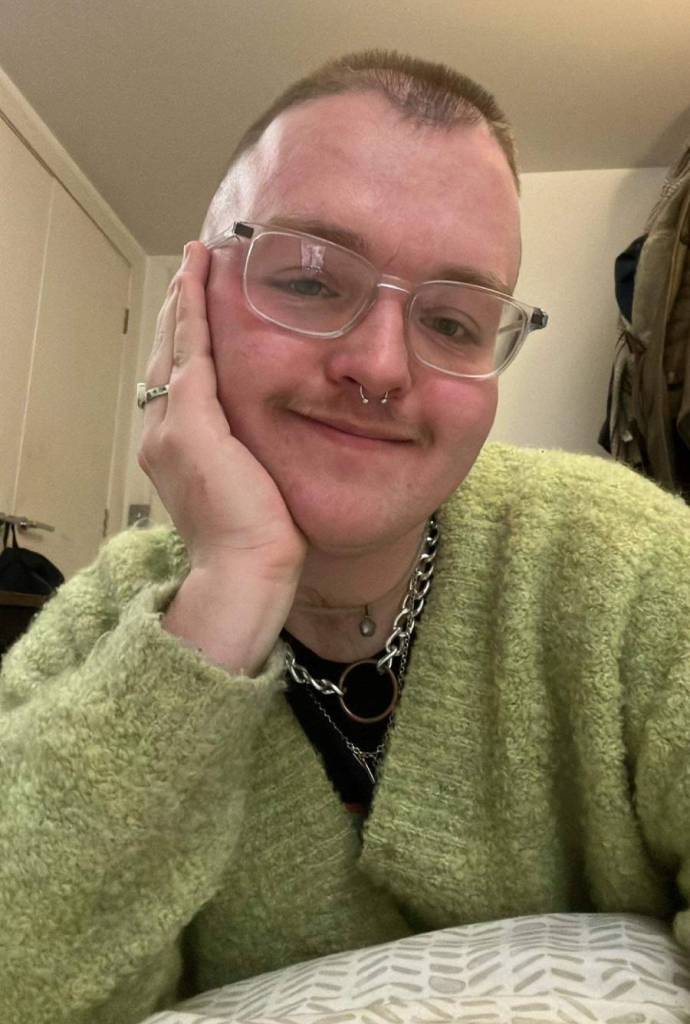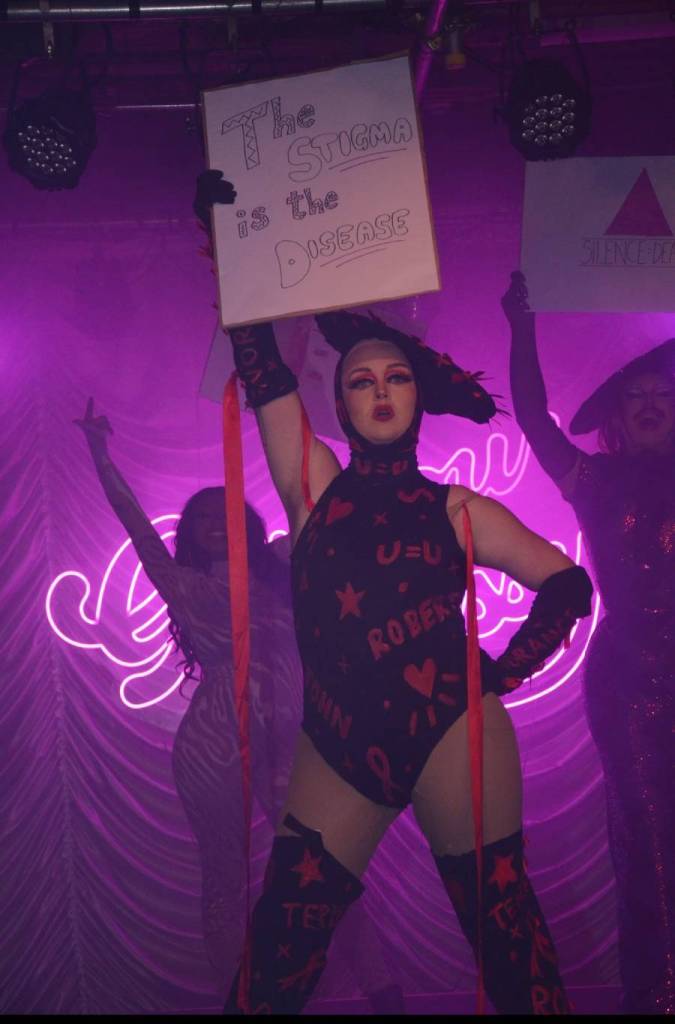‘I’m gay, scouse, a drag queen living with HIV – that’s the holy trinity of being mouthy’

Kyle Cook, who performs as Sue Pertrouper, uses his platform as a drag queen to be a “voice” for people living with HIV like him. (Kyle Cook/Canva)
Kyle Cook jokes that he’s the “holy trinity of being mouthy” because he’s gay, a scouser and a drag queen. And that makes him a “perfect” person to raise awareness about what it’s like to live with HIV.
The virus continues to be a major public health concern in the UK and around the world. Major scientific advances have made it possible to suppress it while other drugs can prevent transmission if taken correctly. But a vaccine remains out of reach.
Insufficient funding for public health programmes and anti-LGBTQ+ stances also make it difficult to turn the tide. Social barriers, such as stigma and discrimination, also affect how comfortable people feel about revealing their status.
Cook was diagnosed with HIV in 2017, and coming to terms with the new trajectory of his life was “difficult in points”. He “grappled” with it for a couple of years, thinking about how it would affect his dating life and wondering if it made him undesirable.
“Getting diagnosed and having some prior knowledge on HIV was a double-edged sword because I knew I wasn’t going to die and my life wasn’t over, but I also knew how a big percentage of people viewed it,” he told PinkNews.
“I was acutely aware of the stigma, and I had a personal battle with: ‘You already don’t have a successful dating life so this is gonna be ‘fun’, having to implement this as well’.”

Because of internalised stigma, Cook kept his diagnosis to himself to start with. He developed “medical anxiety”, and was “too scared” to make follow-up appointments if he missed a check-up with his doctors.
“I was shirking my medical responsibility in a way because I was too scared to go back,” he recalled.
“I thought: ‘What if I go back and they turn around to say I’d developed Aids’ – holes in my knowledge, but also the real fear… I finally went to the doctor and I was fine. [I] got put on medication.
“But I struggled with how open I wanted to be. How many people to tell. I know it’s not what it used to be, but who can I be bothered to explain this to?”
He “grappled” with being “responsible medically… protecting [his] insecurities” and his mental health by “telling the correct people”.
When he eventually told his family, his mum and stepdad were a “bit emotional” and had “lots of questions”, but, he said, they’ve been amazing ever since.

During the COVID-19 lockdowns, Kyle learned much about HIV through doing charity work, and it helped him feel seen. He also realised how his love of performing as his drag persona, Sue Pertrouper, could be a pathway for him to be a “voice” for other people living with HIV.
“I thought: ‘You have a rare gift of being able to talk about really heavy, emotional, potentially triggering things and bring a bit of levity to them,” he said.
“It’s like the working class, not always having the easiest life… I ended up starting drag in 2021.
“Then on World Aids Day in 2021, I kind of came out publicly. I launched my social media profile, and just openly said: ‘It feels like the correct time to talk about this. I have HIV. Here [are] all the facts’.
“I got some real validation that day. I realised I was on to something.
“I got some really lovely opportunities from it. I did town halls, went to colleges and got to film with Ladbible. Everywhere, the feedback was the same, like: ‘Oh, you’re so good at public speaking’. And I said, ‘I’m gay, scouse and a drag queen – that is the holy trinity of being mouthy’.”
During his drag sets, he talks about living with HIV. He’s done HIV-inspired drag looks, wearing a club kid outfit with slogans and the names of notable figures who have died from Aids-related illnesses.
“I’ve got a recurring joke where people are always telling me to stay positive, and I’m like: ‘I’ve got no f**king choice’.”
His drag career has become an opportunity to educate others. Having these kinds of conversations normalises speaking about it instead of relegating such discussions to the shadows, Kyle said.
“That’s the only way we can build tolerance into actual respect and understanding. It’s those casual conversations with people who don’t know about it. It’s a trickle-down effect.
“If you know about HIV, then you should share infographics online. Talk about it when you get a chance because people think it’s ancient history… It’s not specifically a queer issue, it’s just impacted our community the most because of queerphobia from the 80s through to now.”
To learn more about HIV and Aids research, testing and treatment, visit Amfar or the Terrence Higgins Trust.

